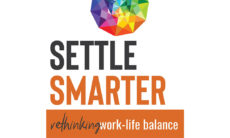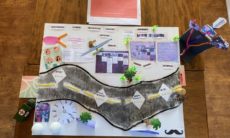As companies begin to (or plan to in the coming months) re-open their physical offices, a range of questions and concerns will need to be addressed. Hybrid workplaces look, at least initially with the clients I work with, to be a favored approach. As the contours of this model come into focus, an important aspect to consider will be the scope and variety of development opportunities available to employees. Mentorship and sponsorship will be key to employees’ successful professional growth, especially women and people of color.
Mentors play a vital role in helping us define, develop and execute plans to achieve our career aspirations. As many of us move to hybrid work environments, the need for transformative, thoughtful and thought-provoking mentorship will be paramount. Effectively doing this will require mentors and mentees to focus on building rapport and infusing clarity of purpose in their relationships. The strength, trust and integrity of these relationships will facilitate our ability to adapt to the norms and nuances of hybrid work. The Articles section explores this and other facets of what will be necessary to creative not just effective, but thriving hybrid work environments.
Other curated highlights include Edgar Schein’s slender gem of a read on the art and science of helping and the implications for both professional and personal relationships. And for the listener-oriented of you, I especially liked Kevin Roose’s engaging podcast interview on the future of AI in the workplace and the roles humans will likely occupy in that future.
As always, happy reading and listening!
Articles
What Great Mentorship Looks Like in a Hybrid Workplace. “…For leaders who feel mentoring is one more thing they can’t focus on right now, we encourage you to see this powerful tool as something that can liberate you and empower your workforce to support one another — and we hope you find purpose in doing so.”
What Psychological Safety Looks Like in a Hybrid Workplace. “…We suggest a series of five steps to create a culture of psychological safety that extends beyond the work content to include broader aspects of employees’ experiences.”
How to Do Hybrid Right. When designing flexible work arrangements, focus on individual human concerns, not just institutional ones. “…As leaders recognize what is possible, they are embracing a once-in-a-lifetime opportunity to reset work using a hybrid model. To make this transition successfully, they’ll need to design hybrid work arrangements with individual human concerns in mind, not just institutional ones. That requires companies to approach the problem from four different perspectives: (1) jobs and tasks; (2) employee preferences; (3) projects and workflows; and (4) inclusion and fairness.”
4 Imperatives for Managing in a Hybrid World. “The hybrid work model provides organizations a powerful tool for organizing their work. Yet, as these four imperatives from the Nordic leadership teams attest, leaders need to appreciate the organizational tensions that lurk beneath the surface and be careful to not let them become part of their new longer-term model.”
Resist Old Routines When Returning to the Office. “In places where pandemic restrictions are easing, companies must embrace this unique opportunity to retain the beneficial practices they adopted during the crisis. To do so effectively, leaders must be thoughtful about identifying which have been successful and deliberate in ensuring that the changes stick.”
5 Ways To Build Better Remote Work Cultures. “If there’s an organizational culture lesson that’s coming out of this pandemic, it’s that what was bad in a culture before is most likely doubly bad when remote…So if alternative work cultures are here to stay, then leaders need to embrace a new way of managing.”
Remember: What You Do Is Not Who You Are. “The line between our personal lives and our work lives has all but disappeared. Make the effort to redraw it.”
Books
Helping: How to Offer, Give, and Receive Help
by Edgar H. Schein
“In this seminal book on helping, corporate culture and organizational development guru Ed Schein analyzes the dynamics of helping relationships, explains why help is often not helpful, and shows what any would-be-helper must do to insure that help is actually provided…Schein exposes and shows how to resolve the inequities and role ambiguities of helping relationships, describes the different roles that helpers can take once the relationship is balanced, and explains how to build a balanced relationship and how to intervene as that relationship develops.”
Faithful Place (Dublin Murder Squad #3)
by Tana French
“Back in 1985, Frank Mackey was nineteen, growing up poor in Dublin’s inner city and living crammed into a small flat with his family on Faithful Place. But he had his sights set on a lot more. He and his girl, Rosie Daly, were all set to run away to London together, get married, get good jobs, break away from factory work and poverty and their old lives.
But on the winter night when they were supposed to leave, Rosie didn’t show. Frank took it for granted that she’d given him the brush-off–probably because of his alcoholic father, nutcase mother, and generally dysfunctional family. He never went home again. Neither did Rosie…Then, twenty-two years later, Rosie’s suitcase shows up behind a fireplace in a derelict house on Faithful Place, and Frank is going home whether he likes it or not.”
Podcasts
HBR Presents: The Anxious Achiever: Creating Boundaries in Our Everyday Work. “A conversation with author Roxane Gay about work and mental health. Plus, Bob Pozen discusses productivity and mental health.”
TED Talks Daily: The value of your humanity in an automated future. “To futureproof your job against robots and AI, you should learn how to code, brush up on your math skills and crack open an engineering textbook, right? Wrong. In this surprisingly comforting talk, tech journalist Kevin Roose makes the case that rather than trying to compete with the machines, we should instead focus on what makes us uniquely human.”
HBR Presents: IKEA Navigates the Future While Staying True to Its Culture. “How should IKEA adapt to big internal and external changes, while staying true to its core values?”
Blog Posts
Seth’s Blog: Two ways to challenge the status quo: slowly or all at once. “The culture is changing far more rapidly than it ever has before. And yet, it still changes slowly enough for us to grow impatient when important ideas and practices around health, justice and community are ignored. And yet it changes. Persistent and consistent effort with focus is our only way forward.”
Eric Barker: This Is The Most Fun Way To Make Your Life Awesome. “This is the story that makes great lives — and I think you can now see why. This story has both pride and humility. It’s goal-oriented and offers insight as to how to achieve those goals. It is purposeful and meaningful. It doesn’t deny the problems of the past but knows that they made you better. It creates a path to a better life for yourself and, more importantly, for others.”
Arts, Music & Culture Corner
Annie Murphy’s One-Eighty. “The ‘Schitt’s Creek’ star discusses trading Alexis Rose’s ‘socialitey’ vocal fry for a working-class Boston brogue on [her new] meta sitcom-drama.”
Lucinda Williams Had a Stroke Last Year. She’s Ready to Sing Again. “The health scare comes amid a career renaissance for the roots-music icon, who has influenced artists from Jason Isbell and Miranda Lambert to Gillian Welch and Waxahatchee. Her 2020 album Good Souls Better Angels was released to critical raves and earned her a pair of Grammy nominations. She spent a good portion of the pandemic performing covers and her own material in the livestream series Lu’s Jukebox (recorded before the stroke) and talked about her watershed album Car Wheels on a Gravel Road as part of Rolling Stone‘s RS500 Greatest Albums podcast.”
I’m Not Scared to Reenter Society. I’m Just Not Sure I Want To. “I have gotten acclimated to a different existence.”
Reflections
“Sevens kill companies. When someone has a four, you just know they’re not doing the job, they’re not up for it, and let’s take them out of the system. But the problem with a seven is that you don’t get to that point, because that person will have glimmers of being able to do the job … They’ll have these things that are redeeming. But because they have those things, two things happen. One, there’s an opportunity cost of that seat. When someone that’s a seven is holding the seat, it means you don’t have a nine having that seat. Two is that, and I see this all the time, the execution of a team is often brought down by the weakest link. An entire team can be brought down by that seven.” — Sarah Tavel
Excerpt taken from The Only Revolution by Jiddu Krishnamurti
“If you pass on through the meadows with their thousand flowers of every color imaginable, from bright red to yellow and purple, and their bright green grass washed clean by last night’s rain, rich and verdant—again without a single movement of the machinery of thought—then you will know what love is. To look at the blue sky, the high full-blown clouds, the green hills with their clear lines against the sky, the rich grass and the fading flower—to look without a word of yesterday; then, when the mind is completely quiet, silent, undisturbed by any thought, when the observer is completely absent—then there is unity. Not that you are united with the flower, or with the cloud, or with those sweeping hills; rather there is a feeling of complete non-being in which the division between you and another ceases.
The woman carrying those provisions which she bought in the market, the big black Alsatian dog, the two children playing with the ball—if you can look at all these without a word, without a measure, without any association, then the quarrel between you and another ceases. This state, without the word, without thought, is the expanse of mind that has no boundaries, no frontiers within which the I and the not-I can exist.
Don’t think this is imagination, or some flight of fancy, or some desired mystical experience; it is not. It is as actual as the bee on that flower or the little girl on her bicycle or the man going up a ladder to paint the house—the whole conflict of the mind in its separation has come to an end. You look without the look of the observer, you look without the value of the word and the measurement of yesterday. The look of love is different from the look of thought. The one leads in a direction where thought cannot follow, and the other leads to separation, conflict, and sorrow. From this sorrow, you cannot go to the other. The distance between the two is made by thought, and thought cannot by any stride reach the other.
As you walk back by the little farmhouses, the meadows, and the railway line, you will see that yesterday has come to an end: life begins where thought ends.”
This article was originally published here.









